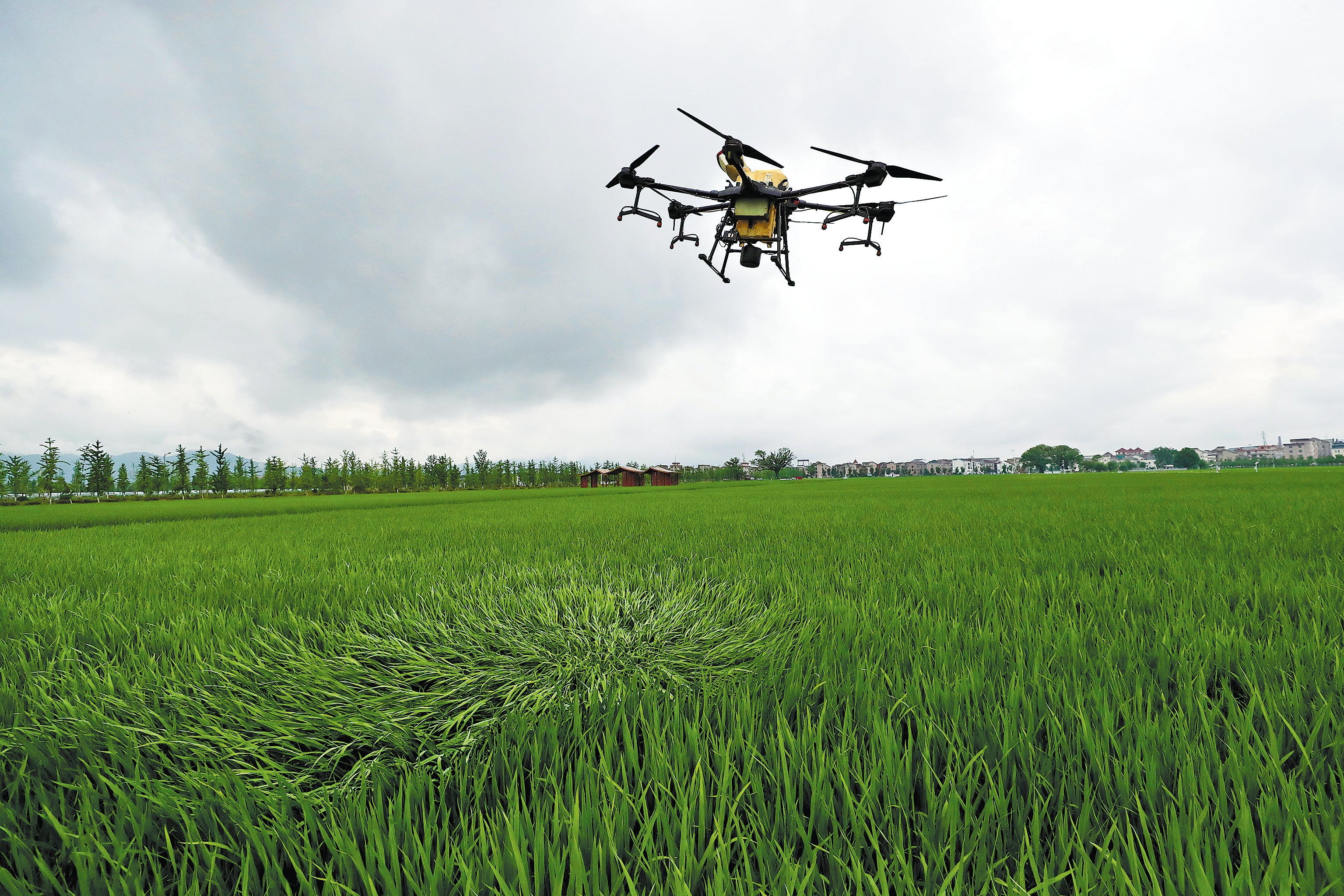Futuristic village heralds new life for rural residents
THE ARTICLES ON THESE PAGES ARE PRODUCED BY CHINA DAILY, WHICH TAKES SOLE RESPONSIBILITY FOR THE CONTENTS

A plough trailing an unmanned tractor powered by 5G technology roared into life and began working a small parcel of land.
Hundreds of metres away, a humming drone lifted off into the air. To the cheers of a group of fifth-graders visiting from a nearby school, it sprinkled a mist of fertiliser over a patch of rice crops.
Sensors embedded on the edge of the paddy fields collected a range of real-time data such as soil moisture, incidence of disease and pH levels. Later, the parameters were analysed to see if human intervention was required.
These were the scenes on a recent workday in Cailu village, a futuristic rural community in hilly Zhejiang province. The village is tucked away in the rolling mountains of Jinhua, a city of seven million inhabitants that is known for its ham, smallware markets and the Hengdian World Studios, a sprawling filmmaking base dubbed “China’s Hollywood” by the media.
However, Cailu is less well-known as a front-runner in the promotion of next-generation farming techniques. The push for labour-saving and data-intensive farming methods is part of a larger national effort to reform food production in light of the rapidly ageing population and the greater demand for quality foodstuffs.
Now, Cailu is home to about 80 hectares (197 acres) of highly mechanised fields of hybrid rice, with each hectare yielding more than 15 metric tons a year, said Xu Xufeng, a local Party official.
To build such facilities, the village authorities have rented farmland via an arrangement known as a “land transfer”, a practice commonly adopted to centralise the piecemeal fields previously tilled by individual farmers.
Cailu invested more than 10 million yuan (£1.1 million) to equip the fields with tech-filled machines, and leased the plots to several rice-growing operations.
“From transplanting rice seedlings to field management to the harvest, the whole process can be accomplished with the minimum of human involvement,” Xu said.
An exhibition dedicated to Cailu’s history shows that the village saw a severe exodus of farmers in the 1990s, when the coastal regions were urbanising rapidly. By 1992, more than 85 per cent of locals no longer tilled the land and one-third of the paddy fields were deserted. Uninterested in the razor-thin profits promised by traditional rice growing, the young and capable deserted the fields and landed better-paid jobs in cities.
To stabilise food production, Lu Kaiwen, Cailu’s Party chief at the time, promoted a simplified approach to planting rice with great success. Rice seeds are usually nurtured in a nursery for more than four weeks before being transplanted to the fields. However, a local farmer accidentally discovered that the direct planting of sprouting seeds could yield almost the same amount of rice.
Lu quickly endorsed the approach and encouraged other farmers to follow suit.
The method greatly reduced the labour involved in rice cultivation, providing a boon to other rice-growing regions that were also troubled by the loss of farmers to the cities. It gained attention from higher authorities, and was promoted nationwide as the “Cailu Practice” in the 1990s.
“Now, the technologies are more powerful and machines have replaced people in rice production. Bumper harvests are inevitable,” said Lu, 77.
Xu said the success of the Cailu Practice and the early embrace of unmanned food production technologies have one thing in common: the pioneering spirit of the local people.
“When we see obstacles, we do not give up. Instead, we try to figure out a way,” he said.
Xu noted that the fields are about more than just food production as they also serve as a park for local people to take after-supper walks, as well as an outdoor classroom in which grade-school students can conduct field studies.
Subscribe to Independent Premium to bookmark this article
Want to bookmark your favourite articles and stories to read or reference later? Start your Independent Premium subscription today.